Zambia's copper resources have not made the country rich. Virtually all Zambia's copper mines are owned by corporations. In the last ten years, they've extracted copper worth $29 billion but Zambia is still ranked one of the twenty poorest countries in the world. So why hasn't copper wealth reduced poverty in Zambia? Once again it comes down to the issue of tax, or in Zambia's case, tax avoidance and the use of tax havens. Tax avoidance by corporations costs poor countries and estimated $160 billion a year, almost double what they receive in international aid. That's enough to save the lives of 350,000 children aged five or under every year. For every $1 given in aid to a poor country, $10 drains out. Vital money that could help a poor country pay for healthcare, schools, pensions and infrastructure. Money that would make them less reliant on aid.
Related Movies
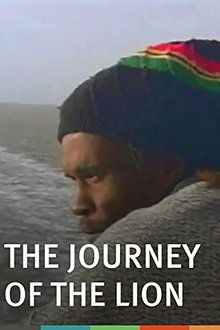
The Journey of the Lion (1992)
Brother Howie is a Jamaican Rastifari who dreams of the land of his ancestors: Africa. On a journey in search of his roots and his identity he travels through three continents and (with great humor and sensitivity) discovers the world and Africa.

Portrait of a Lone Farmer (2013)
A documentary about a Danish-Nigerian family torn apart by geography, who are today trying to both comprehend and explain the choices they made that have led them to this point. When the filmmaker Jide, for the first time in five years, visits his father’s poultry farm, we see through his camera the unfolding of a story about family, love, and legacy. It is a quiet and stunning portrait of a broken family trying to heal, one in which the drama occurs in their mutual understanding, and never takes up more space than the impressions that meet Jide’s camera.
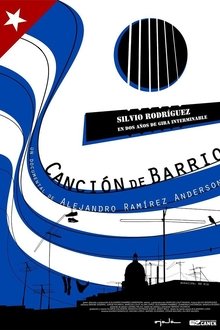
Canción de barrio (2014)
Documentary collecting some experiences of the first two years of the "Gira interminable" tour were Silvio Rodriguez performs for the marginal neighborhoods of Havana and other provinces.
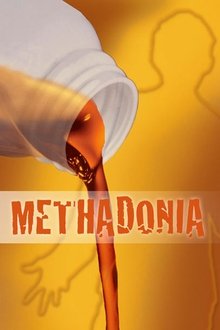
Methadonia (2005)
Shot over the course of 18 months in New York City's Lower East Side, METHADONIA sheds light on the inherent flaws of legal methadone treatments for heroin addiction by profiling eight addicts, in various stages of recovery and relapse, who attend the New York Center for Addiction Treatment Services (NYCATS).
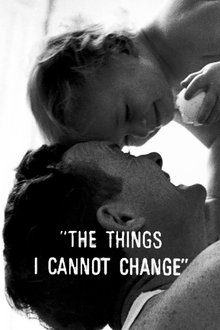
The Things I Cannot Change (1967)
"This feature documentary is considered to be the forerunner of the NFB's Challenge for Change Program. The film offers in inside look at 3 weeks in the life of the Bailey family. Trouble with the police, begging for stale bread, and the birth of another child are just some of the issues they face. Through it all, the father tries to explain his family's predicament. Although filmed in Montreal, the film offers an anatomy of poverty as it occurs throughout North America." - NFB
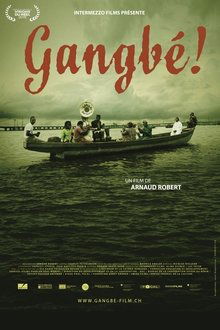
Gangbé! (2015)
The Gangbé Brass Band, a musical group from Benin, sets out to conquer Lagos, capital of Nigeria.
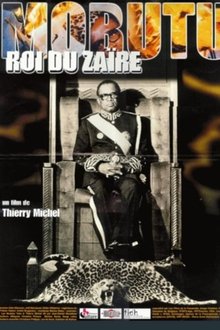
Mobutu, King of Zaire (1999)
This film is the result of more than two years of work tracking down archive material and witnesses close to Mobutu in Africa, Europe and the U.S. More than 950 hours of footage have been seen by the world. Among the 104 hours selected as the basis for this film, are 30 hours of archives recently discovered in Kinshasa and never before released. Completing these exceptional documents, are more than 50 hours of interviews with those close to the former president and the events surrounding his reign, conducted by the director in Kinshasa, Brussels, Paris and Washington. Like a vast historical puzzle, this film pieces together the tragic history of a country, and its self-styled leader - the dictator, Mobutu Sese Seko, "King of Zaïre".
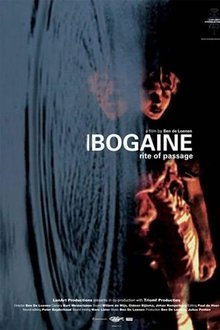
Ibogaine: Rite of Passage (2004)
Ibogaine is a plant extract that stops drug addiction. In this documentary, a 34-year-old heroin addict undergoes ibogaine therapy with Dr Martin Polanco at the Ibogaine Association, a clinic in Rosarito, Mexico. In Gabon, where use of the iboga root is traditional, a Babongo woman's tribe uses the plant to help her recover from a depressive malaise. Director Benjamin De Loenen interviews people formerly addicted to heroin, cocaine, and methamphetamine, who share their perspectives about ibogaine treatment.
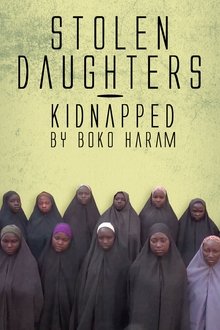
Stolen Daughters: Kidnapped By Boko Haram (2018)
The story of the freed female hostages of Boko Haram, detailing their lives in captivity and since their release.

A Little Fish in Deep Water (1996)
Lake Tanganyika is an 'Ocean' in Africa. Millions of years ago it was colonized by a little fish called 'Cichlid'. Otters, crocodiles, cobras and cormorants all hunt the fish in clear water. How the Cichlid survived and evolved is an incredible story for, millions of years later, there are over 200 new species - all found only in Lake Tanganyika. Incredibly, they have evolved to look like coral reef fish. There are cichlid equivalents of tuna, snapper, gobies and goatfish. They have evolved bizarre methods of breeding with mouth-incubation, lekking and, unique amongst fish, there is even a cuckoo. Despite all their specialization over millions of years, if an opportunity presents itself, the little fish can behave like their unspecialized ancestor. In the climax of the film, they bang together to feast on a hatch of sardine fry. This is the story of how one little fish has conquered a lake.

Lords of the Forest (1958)
Documentary about the inhabitants, both human and animal, of the Belgian Congo.
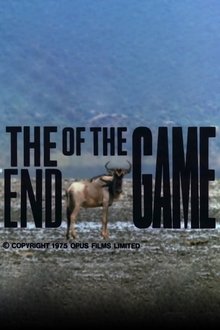
The End of the Game (1976)
An intimate view of the panorama of African wildlife, giving a sense of what it is really like to be there, and in a dramatic climax makes a poignant plea for conservation. Filmed in Zaire, Kenya and Tanzania, the film takes the viewer from deep inside an anthill, to the majestic giraffes suckling their young. African storms, dung beetle ritual dances, duels for supremacy, feeding time, and playtime all end as the animals disappear one by one while the sound of a rifle shatters the existing magic of life. Winner of the Academy Award for Documentary Short Subject, 1976.
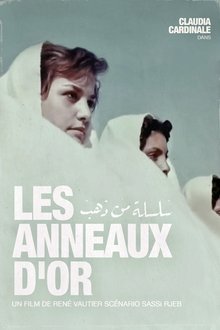
Les Anneaux d'Or (1956)
At the time of Tunisian independence, owners of large boats decide to sell, while many small fishermen soon find themselves without work. Their wives then decide to pool their gold rings to sell them and thus buy boats.
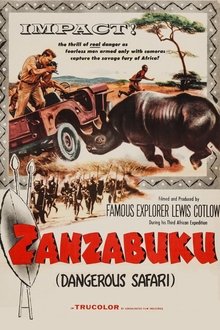
Zanzabuku (1956)
Famed explorer Lewis Cotlow leads a hunting and archaeological expedition into Africa.
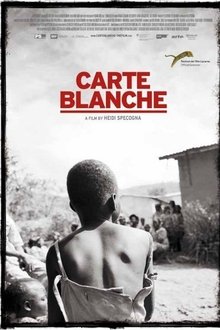
Carte Blanche (2011)
A documentary about investigators of the International Criminal Court trying to gather evidence of crimes committed in Africa.
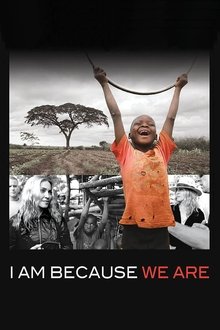
I Am Because We Are (2008)
A look into the lives of Malawi's 1 million plus orphans in the wake of the AIDS pandemic. It offers hope and real solutions to the challenges that people face living in extreme poverty.

Ghost Town to Havana (2015)
A rampant, street level story of mentorship and everyday heroism in tough circumstances. An inner city coach's son, estranged in his youth from his father, spends five years on ball fields in inner city Oakland and Havana, following the lives of two extraordinary youth baseball coaches, Roscoe in Oakland and Nicolas in Havana. The coaches meet on videotape and two years of red tape later, Coach Roscoe and nine Oakland players travel to Havana to play Coach Nicolas' team. For one week, the players and coaches eat, dance, swim, argue and play baseball together. But when the parent of an Oakland player is murdered back home, it brings back the inescapable reality and challenges of life in an American inner city.

Another Day of Life (2018)
In 1975, Ryszard Kapuściński, a veteran Polish journalist, embarked on a seemingly suicidal road trip into the heart of the Angola's civil war. There, he witnessed once again the dirty reality of war and discovered a sense of helplessness previously unknown to him. Angola changed him forever: it was a reporter who left Poland, but it was a writer who returned…
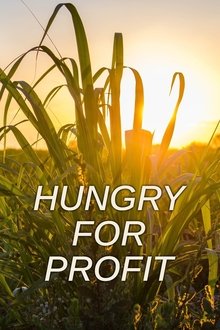
Hungry for Profit (1985)
Is our food bought at the price of famine in the developing world? Is agribusiness more interested in producing profits than producing food? This PBS independent documentary investigates U.S. and European agribusiness in the Third World. Filmed on five continents, it takes a close look at agribusiness, which is turning the world's food supply into a global supermarket, buying food at the lowest prices-regardless of small farmers and local populations-and selling it at the highest price and the greatest profit whenever possible.
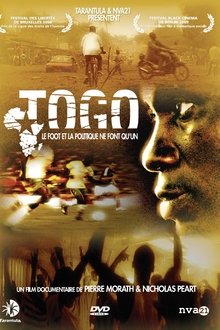
Togo, le foot et la politique ne font qu'un (2008)
October 8, 2005. Togo, one of Africa's poorest countries, qualifies for the World Cup for the first time in its history. The achievement is not only historic; it also hastens the end of the bloody civil war that has been ravaging the country for several months. On the eve of the World Cup opening in Germany, hopes are high in Lomé, the capital of Togo, that the national team will restore pride and prosperity to an entire people. However, disillusionment quickly sets in. The team had not even entered the competition when it was already beset by endless internal problems. What if soccer, in the end, was nothing more than a reflection of the deep-seated problems that have been plaguing Africa for years?